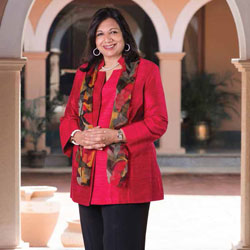
From wanting to ‘green the world’ through eco-friendly enzyme technologies, Biocon’s mission changed to ‘heal the world’ by developing affordable life-saving drugs for patients across the globe. Behind this world class enterprise is a dynamic woman – Dr Kiran Mazumdar-Shaw who has created a revolution in manufacturing world class, affordable pharmaceuticals. Featuring her inspiring personal and professional journey from the 1970s
A pioneer of the biotechnology industry in India and the head of the country’s leading biotechnology enterprise, Biocon, Kiran Mazumdar-Shaw is an internationally acclaimed biotech magnate. A first generation entrepreneur, she has made India proud with a globally recognised bio-pharmaceutical enterprise that is committed to innovation and affordability in delivering world-class therapeutics to patients globally.
Kiran Mazumdar-Shaw is the Chairperson and Managing Director of Biocon, Asia’s leading bio-pharmaceuticals enterprise. Named among TIME magazine’s 100 most influential people in the world, she is recognised as a global thought leader for biotechnology. Under her stewardship, Biocon has evolved since its inception in 1978 from an industrial enzymes company to a fully integrated, innovation-led, emerging global biopharmaceutical enterprise committed to reduce therapy costs of chronic conditions like diabetes, cancer and autoimmune diseases.
As a global influencer, she is ranked among Fierce Biotech’s list of the ‘World’s 25 Most Influential People in Biopharma,’ Forbes’ ‘100 Most Powerful Women’ and Fortune’s ‘Top 25 Most Powerful Women in Asia-Pacific.’ She was also featured in 'The Worldview 100' listing of Biotech Visionaries in the prestigious US-based Scientific American magazine. She was also ranked second in the Global Medicine Maker Power List 2015, a top UK-based medical publication. U S-based Chemical Heritage Foundation conferred her with the ‘2014 Othmer Gold Medal’ and Germany-based Kiel Institute for the World Economy awarded her its coveted ‘2014 Global Economy Prize.’ The US based Business Foreign Policy magazine has named her among the ‘100 Leading Global Thinkers of 2014’. She has been awarded the Padma Shri in 1989 and the Padma Bhushan in 2005.

“I was also inspired by my teacher, Anne Warrior, while in school. She taught me to think for myself, to excel in everything I do and to do things differently and creatively in order to make a difference”
In this in-depth interview to Corporate Citizen, Dr Kiran Mazumdar-Shaw, gives an insight into her courageous foray into the biopharmaceutical world, as a woman entrepreneur and how she has created an ‘inclusive’ world for affordable medicines in lifestyle diseases like diabetes and cancer, that has gripped the world today.
All through my growing years, my father had been my role model. I inherited from my father the art of defying convention. A man far ahead of his times, he believed in the equal treatment of men and women and always encouraged me to take the road less travelled. He also taught me that risk and failure are intrinsic to any business and counselled me to persevere in the face of adversity.
I was also inspired by my teacher, Anne Warrior, while in school. She taught me to think for myself, to excel in everything I do and to do things differently and creatively in order to make a difference.
My father had trained at the Brewing School at Heriot-Watt University in Edinburgh in 1946 and had returned to become the first Indian brew master. When I failed to make it to medical school, he urged me to take a plunge and test the waters as a brewer. In the 70s, brewing was a fairly nascent stream in India and there weren’t many professional brewers. I took on the challenge to prove myself in a vocation unexplored by Indians and more so by women the world over. Brewing was, after all, the oldest biotechnology and it suited my aptitude for applied science.
It was a life-changing experience for me. When I joined the course, I realised I was the only woman in a male-dominated career program. However, far from intimidating me, these adversities strengthened my resolve to be successful. I learned to fend for myself in an industry that was dominated by men. This boosted my confidence significantly. It set a strong foundation for me to work diligently, aiming at excellence and competing with the ‘best’ in the industry.
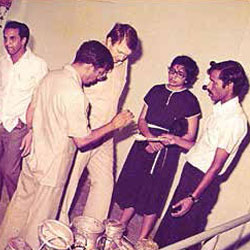
I graduated as a Master Brewer from the Ballarat Brewing School in Australia in 1975. My aspiration was to pursue a professional career in brewing. However, I was unprepared for the hostility and gender bias that I faced from the brewing industry. It was this rejection that saw me turn to entrepreneurship quite by accident and set up a biotech start-up in India, where I leveraged my fermentation knowledge to produce enzymes and biopharmaceuticals instead of beer. When I started Biocon, I was 25 years old with no business experience and limited financial resources. In the 1970s, entrepreneurship was an unusual career choice for women and biotechnology was unheard of as an industry sector. I was daring to start a business in a male-dominated society and that too in a sector that no one was familiar with. Fuelled more by drive and vision than by business expertise, I approached the venture with the single-minded aim of succeeding. I was determined to build a world-class biotechnology enterprise and show the world that it was possible to produce high quality, high technology products in India based on cutting-edge R&D.
When I started Biocon, I initially focused on making industrial enzymes, exploring ways in which to replace polluting chemical technologies with eco-friendly enzyme technologies. It was about disrupting industrial processes and it worked. My products succeeded in getting several industries to switch from using polluting chemicals to eco-friendly enzymes. Having attained success in enzymes, I leveraged my knowledge of biotechnology to try and disrupt the healthcare industry by introducing affordable biopharmaceuticals for patients who needed them the most. Over time, we built the knowledge, expertise and skills essential for developing cutting-edge biopharmaceuticals. We also built state-of-the-art world-class manufacturing facilities to create global scale for producing high quality biopharma drugs at a cost that makes them affordable to a large global patient pool. From wanting to ‘green the world’ through eco-friendly enzyme technologies, Biocon’s mission changed to ‘heal the world’ by developing affordable life-saving drugs for patients across the globe.
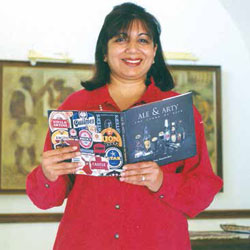
When I began my pharmaceutical journey, I had a choice to develop low-cost generic pharmaceuticals or complex, capital-intensive biopharmaceuticals. I chose the latter and invested in disruptively innovative engineering process that could deliver affordable pricing and make a difference to global healthcare. It led me to make long-term investments in creating ‘best-inclass’ complex biologics manufacturing capabilities. I leveraged the advantages of cost, scale and knowledge that India offers. Over time, Biocon successfully developed both novel biologic drugs as well as affordable biosimilars. In doing so, I brought advanced biopharmaceuticals against diabetes and cancer to patients in India and other developing countries at price points that made them affordable and thus accessible.
We are now leveraging our experience in India and emerging markets to take affordable biopharmaceuticals to a global patient pool. Biocon today has one of the largest portfolios of biosimilar insulins and antibodies in advanced stages of development for approvals in the developed markets. We are confident that, together with our partners around the world, we can build a strong global presence in biosimilars to address the huge need for affordable access to these life-saving and life-enhancing biologics.
When I started Biocon in 1978, resources were limited, the available infrastructure was primitive and I had to function in a fairly hostile business environment. As a young, 25-year-old woman entrepreneur, with no business background and limited financial resources, I had to surmount a lot of credibility challenges. Professionals did not want to work for me as they felt that I could not provide them ‘job security’ being a woman, and some even assumed I was the secretary to the Managing Director (MD) and not the MD. Suppliers told me they were reluctant to give me credit because they did not have confidence in my business abilities. Banks and financial institutions were reluctant to fund me and some even suggested that my father should be the guarantor for any loans.
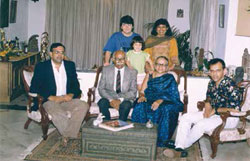
“Women in India have strong representation in middle management levels across diverse sectors like banking and financial services, information technology, pharma and life sciences, retail, engineering, consumer goods and so on”
I succeeded against these odds because I understood that all challenges can be surmounted with perseverance and ingenuity. I was driven by the spirit to create a business that would leverage Science for the benefit of society through affordable innovation. What spurred me on this mission of making a difference to global health was the realisation that a significant proportion of the world’s population does not have access to essential medicines and, where healthcare does exist, it is unaffordable.
Like most Asian countries, India today is home to a new breed of women who exude self-confidence irrespective of what strata of society they come from. They display a sense of self-belief that allows them to excel in any domain and compete with their male counterparts on an equal footing. Many of them are outperforming their male colleagues and assuming leadership roles in their respective fields. Women in India have strong representation in middle management levels across diverse sectors like banking and financial services, information technology, pharma and life sciences, retail, engineering, consumer goods and so on. India is now taking proactive steps to increase the ambit of contributions that women can make. The country has passed a law to raise women's representation in corporate boardrooms. Moreover, initiatives have been unveiled to encourage more women entrepreneurs. India is trying to embed greater gender diversity into the nation’s culture to help channelise the power of women in bringing in transformational change for a much greater economic value addition.
I believe in empowering my employees to assume challenging responsibilities that involves decision-making. It is my belief that problem solving is a great way to motivate employees. I also believe in recognising talent and rewarding star performers.
In building Biocon, I have created a company where women professionals can work shoulder to shoulder with their male colleagues and where men and women have mutual respect. It is this sense of mutual respect that enables people to work together as a team for the greater common good.
“I believe in empowering my employees to assume challenging responsibilities that involves decision making. It is my belief that problem solving is a great way to motivate employees”
As a society we need to bring up every boy to understand that the responsibility for sexual misconduct lies squarely with him. Ordinary Bengaluru citizens also need to come forward to reclaim the city and protect its women-friendly reputation. We cannot remain apathetic to the subject of sexual assaults and let miscreants get away scot free. We need to speak up and protest whenever and wherever we witness sexual misconduct. The political establishment needs to send out a very unambiguous signal that sexual crimes against women will be dealt with sternly. The police should take a ‘zero tolerance’ attitude towards sexual violence, take swift action whenever any such incidents are reported, name and shame the culprits in public and make all efforts to ensure that the guilty don’t go unpunished.
To remedy the situation and transform Bengaluru into a world-class smart city, all stakeholders need to work together towards the common goal of addressing the challenges in the areas of infrastructure, social and civic set-ups.
One of the ways of tackling traffic congestion on Bengaluru roads is through the creation of smart phone apps that enable increased carpooling by Bengaluru’s citizens. Improving the public transport system will also go a long way in traffic decongestion. The government needs to complete the first phase of the Namma Metro and ensure that the second and third phases of the Metro rail project are started expeditiously. Expanding the Bengaluru Metropolitan Transport Corporation’s bus fleet will also help provide an efficient public transport system to the city’s denizens.
“The truth is that women are under represented in the science and engineering workforce because of reasons that are totally unrelated to their aptitude for Science”
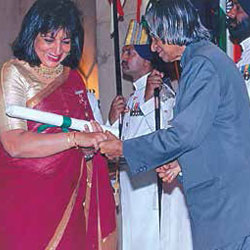
The government also needs to put its weight behind the TenderSURE scheme, which has already resulted in well-designed, world class roads in some parts of the city. We should not allow NGOs to derail the agenda for better city roads by unfairly criticising the TenderSURE scheme.
Also, serious efforts need to be made to transform Bengaluru into a pedestrian-friendly city through the construction of well-designed and standardised footpaths.
Biotechnology has already delivered a number of societal and economic benefits to India which in turn have been shared with other global economies. The Indian Biopharmaceutical Industry is already one of the largest producers of vaccines with ‘one in three’ children in the world being immunised with a ‘Made in India’ vaccine. On the Agri-Biotech front, genetically modified Bt Cotton has made India into a leading exporter of high quality cotton. India's computational scientists are building scale in genomic sequencing, big data analytics of health and biological data as well as scientific data mining, which are being tapped for developing cutting-edge novel therapies for a global patient population.
Biotechnology is a new frontier for India and with the right resources, policies, infrastructure and vision, it has the potential to lead to a USD 100 billion Bio-economy by 2025. This growth trajectory will encompass all facets of this transformative technology by augmenting agricultural productivity, addressing the economic challenge posed by an enormous disease burden as well as by reducing the carbon footprint through eco-friendly industrial processes and renewable biofuels.
I believe that starting a family should not be a deterrent to a woman’s career goals. There is no reason for a woman not to get back to her work environment after taking maternity leave. Women should be encouraged to develop family support systems or explore the option of day care centres to raise their children. Companies need to do their bit by designing/enabling organisational structures such as flexi-time options and crèches on their campuses to allow women to return to work.
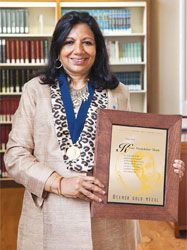
It’s an absurd statement. Knowledge doesn’t discriminate on the basis of gender; its power is there for everybody to harness. The truth is that women are under represented in the science and engineering workforce because of reasons that are totally unrelated to their aptitude for Science. Women are often discouraged from joining Science, Technology, Engineering and Mathematics (STEM) at the undergrad level. Many women working in the STEM fields also tend to drop out of the workforce mid-career as they often perceive a gender bias in performance evaluations. The scenario is however rapidly changing. Women make up around 40% of undergraduates in Science. There has also been a rise in the enrolment of women in graduate programmes in Pure Sciences, from 7.1% in 1950-51 to 40% in 2009, 25- 30% of Science PhDs are women, according to a 2015 report by The Association of Academies and Societies of Sciences in Asia. Moreover, women engineers grew four times from 4.8 lakh in 2001 and to over 20 lakh in 2011.
Young corporate managers today are as professional as they can be. However, I think many of them seem to be in too much of a hurry to succeed. Unfortunately, there are no shortcuts to success, which they need to understand and be willing to learn and succeed.
They must channelise their innate leadership instinct and try to make a difference in their own lives as well as in the lives of others. They need to learn to manage and mitigate risk. They need to remember that leadership is about perseverance and endurance.
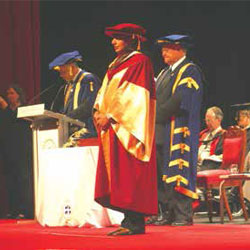
My philanthropy is largely focused on healthcare and I really want to make a difference to people’s lives. In our country, I feel the poor are absolutely neglected and sometimes exploited by the powerful section of the society. In order to address some of their health challenges, I have also allocated a large part of my philanthropy funds to primary health care for rural and urban rural communities. Besides offering regular health services I am also promoting the use of technology in healthcare services to ensure we make a larger impact on improving the health of our people. I have helped to create e-enabled healthcare centres introduced as eLAJ clinics, where technology is used for early detection and treatment which leads to better outcomes.
The Mazumdar-Shaw Cancer Center, my philanthropic initiative in partnership with Dr Devi Shetty is an outcome of our joint vision to create a sustainable affordable cancer care model that leverages advanced technologies, state-of-the-art diagnostic tools and best-in-class talent to address the challenges associated with this debilitating disease. Our unique cancer care model enables the poor to access treatment at costs subsidised by those who can afford it.
My philanthropic efforts in education have been directed at improving the quality of education, primarily in rural schools. Through Biocon Foundation we have been empowering rural children by helping them improve their learning capabilities especially in Mathematics and English. For over a decade now, the Foundation has been providing over 10,000,0 Chinnara Ganitha maths workbooks, especially developed for enhancing mathematical skills of the students, across government schools in rural and semi-urban Karnataka. Through Biocon Academy, I have directed my philanthropic efforts towards imparting advanced learning to young biotech graduates through experiential learning in order to impart highend skills to make them industry ready, thus addressing the skill deficit of the biopharma sector.
India, like many other developing nations, is witnessing rapid urbanisation and concomitant transition from a traditional to a modern lifestyle. This is leading to dietary changes, reduced physical activity, high-levels of stress, and a rise in other unhealthy behaviours, which have led to a very high prevalence of chronic diseases such as cancers, diabetes, chronic respiratory diseases, cardiovascular diseases and other life style induced diseases. Most of these chronic diseases can be remedied in their early stages by primary care providers. However, India suffers from a big gap in preventive and primary healthcare delivery. At present there is a disproportionate focus on specialist care even though a robust and effective primary care programme supported by strong preventive health education and early screening and diagnosis, can make a big difference.
My love for art and music helps me relax and also keeps me intellectually stimulated. Travel is an abiding interest as it helps me indulge my sense of exploration. I enjoy taking short breaks with my family, especially to US and Europe. Some of my favourite destinations are New York, California, Toronto, Paris, Dublin and Spain.
“Failure is not final, giving up is.” I have lived by this code throughout my life and believe me it has paid rich dividends.
Biocon has among the largest and most diversified portfolios of biosimilars, spanning monoclonal antibodies, generic insulin and insulin analogs and other recombinant proteins under development for advanced markets of US, Europe and Japan
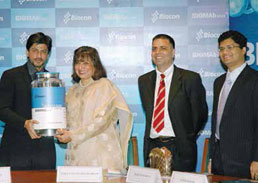
Biologics like insulins and monoclonal antibodies have emerged as a class of highly effective transformational life-saving drugs targeted at chronic diseases like diabetes and cancer. Given the high cost of innovator biologic therapies, follow-on biologics or biosimilars are providing cost-effective alternatives to these expensive medicines. Biocon is among the pioneers in bringing the benefit of high quality, yet affordable biosimilars to India, giving patients, physicians and payers a wider option of affordable therapy.
Biocon used a proprietary technology to produce recombinant human insulin in a cost effective manner and introduced this product as Insugen® in India in 2004, thus providing access to a safe, effective yet affordable alternative to imported insulins to diabetics in India. In 2009, the company developed and launched a long acting basal Insulin Glargine, BASALOG®, for patients in India. By enhancing patient access to insulin, Biocon has emerged as the largest insulin producer in Asia and the fourth largest globally. Recently, Biocon's Insulin Glargine became the first biosimilar from India to be launched in Japan, one of the world’s most stringently regulated markets.
We also introduced the world’s most affordable follow-on Trastuzumab (CANMAb™) in 2014, which enhanced access to a more affordable treatment for HER2-positive metastatic breast cancer in India. This important life-saving drug has already made a significant difference to the lives of several thousand patients.
Biocon has among the largest and most diversified portfolios of biosimilars, spanning monoclonal antibodies, generic insulin and insulin analogs and other recombinant proteins under development for advanced markets of US, Europe and Japan. In partnership with US-based Mylan, we are co-developing a high-value portfolio of six biosimilars for oncology and autoimmune indications -Trastuzumab, Pegfilgrastim, Adalimumab, Bevacizumab, Etanercept and Filgrastim - and three generic insulin analogs - Glargine, Lispro and Aspart for the benefit of patients across the globe.
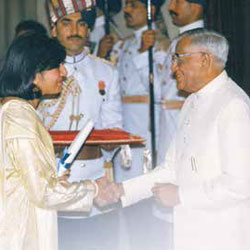
The introduction of biosimilars, which offer comparable levels of safety and efficacy as original biologics, has transformed thousands of lives in some parts of the world. The challenge now lies in making these cutting-edge treatments widely available globally. Global regulations and guidelines need to evolve if biosimilars are to make as much of an impact as small molecule generics have in the past 25 years.
‘Interchangeability’ is an important issue globally that regulators will need to address if patients are to be offered the choice of taking the original biologic drug or substitute a biosimilar drug, just as they currently do with generic versions of chemically synthesised small molecule drugs. US biosimilar regulations have not addressed the issue, while in Europe there are country-specific rules on biosimilar interchangeability.
The lack of clear guidelines on interchangeability with reference biologics is likely to be a cause for concern among physicians until they gain confidence with the usage, experience and outcomes of biosimilars. However, payers are influencing biosimilar decisions in the US even as the government works out guidelines for interchangeability. Leading US pharmacy benefit management (PBM) company, CVS Health, recently left out Sanofi’s blockbuster Insulin Glargine product Lantus from its 2017 formulary, replacing it with Eli Lilly and Boehringer Ingelheim’s biosimilar version of Lantus. Such exclusive arrangements could mean deemed interchangeability for the patient subset covered by the PBM. Biosimilars uptake could also see a boost as more regulators back data extrapolation, which will allow a biosimilar to be approved for multiple indications without undergoing clinical testing in those conditions as long as the reference product itself was approved in those conditions.
The world over, there is a need to create a smarter regulatory pathway that not only cuts down the cost of development but also ‘time to market’, which in turn benefits patients by improving access to affordable drugs. This requires concerted efforts by global regulators and healthcare professionals to minimise development costs through greater harmonisation, mutual recognition and abridged clinical development. As the global regulatory paradigm for biosimilars evolves the cost and complexity deterrents are expected to lessen.
“The world over, there is a need to create a smarter regulatory pathway that not only cuts down the cost of development but also ‘time to market’, which in turn benefits patients by improving access to affordable drugs”
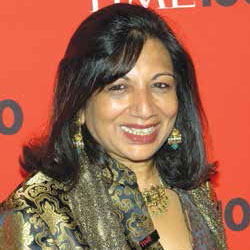
Biocon has been playing a significant role worldwide in reducing the cost of therapy for chronic diseases in India and other emerging markets. Biocon entered the diabetes space over a decade back, when the disease was assuming epidemic proportions in India but treatment was by and large inaccessible to most due to the high cost of treatment. By introducing India’s first indigenous insulin in 2004, Biocon enabled the price of the insulins to come down by more than half, similarly we have enabled the cancer care to be made affordable with the launch of our novels and biosimilars. Besides this, we also run compassionate care programs for the underprivileged.
Biocon Foundation has been making an enduring impact in enabling social and economic inclusion through its preventive health, education and community development programs, for over a decade now. As a part of our fight against cancer, we have been constantly engaged in enhancing awareness, providing early detection, timely prevention, safe and efficacious treatment of diseases like diabetes and hypertension, oral cancer, breast cancer and cervical cancer. We have endeavoured to create a comprehensive and integrated ‘e-LAJ’ clinic network that can deliver affordable and effective healthcare to underserved rural and urban communities in India. ‘eLAJ’ clinics are technology enabled primary healthcare clinics which are equipped with multiparameter monitoring device capable of conducting multiple diagnostic tests and are staffed with doctors, technicians and pharmacists who are trained to provide high quality healthcare services including generation of EMRs (Electronic Medical Records) for patients and dispensing medicines.
As part of our patient support program for people with diabetes, we have been creating awareness on diabetes management and counselling people on ways to lead a healthy life through lifestyle modification. We collaborate with the medical community and enable them to organise Diabetes Detection Camps and Patient Education Programs. Recently we collaborated for The Diabetic Food Trail®, a first-of-its-kind initiative targeted at the general public, which offered Diabetes-friendly healthy food menu options at over 200 restaurants across Mumbai, Delhi, Pune, Chennai and Bengaluru.
We have laid the foundation for growth through our strategic investments in creating a differentiated product portfolio supported by a strong scientific talent base and global scale manufacturing facilities.
Biocon has among the largest and most diversified portfolios of biosimilars, spanning monoclonal antibodies, generic insulin and insulin analogs and other recombinant proteins. In partnership with US-based Mylan, we are co-developing a high-value portfolio of six biosimilars for oncology and autoimmune indications - Trastuzumab, Pegfilgrastim, Adalimumab, Bevacizumab, Etanercept and Filgrastim - and three generic insulin analogs - Glargine, Lispro and Aspart. Collectively, these represent a global addressable market opportunity of about USD 60 billion at current reference product pricing. Our Marketing Authorization Applications (MAAs) for proposed biosimilar Trastuzumab, Insulin Glargine and Pegfilgrastim have been accepted by the European Medicines Agency (EMA) for review. The US FDA's acceptance of our regulatory filing for Trastuzumab is another major milestone for us as this is the first U S regulatory submission through Biocon and Mylan’s joint global biosimilars program.
For biosimilar Adalimumab, we have made good progress in global Phase III trials across multiple sites. Our RoW-focused clinical trials for biosimilar Bevacizumab are in Phase III stage and global trials for the asset in Phase I. Our clinical programs for biosimilar Filgrastim, Etanercept, Lispro and Aspart are in the pre-clinical \ scale-up stage.
The clinical progress in four of the nine biosimilar molecules that we are jointly developing with Mylan positions us among the first wave of pharma companies to be making these products for the US and EU.
by Dr Kiran Mazumdar-Shaw